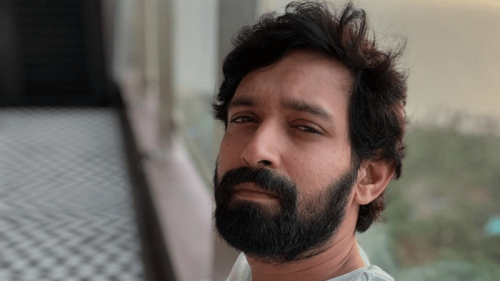KARACHI, July 8: The Sindh High Court directed the district and sessions judges on Tuesday to visit prisons in their territorial jurisdiction to see whether the facilities extended to juvenile offenders by the Juvenile Justice Ordinance were being made available to them.
The judges would submit their reports within 30 days and the matter would come up for hearing on August 17, a division bench comprising acting Chief Justice Azizullah M. Memon and Justice Khalid Ali Z. Qazi said while adjourning its suo motu proceedings on enforcement of the juvenile justice law.
Earlier, Inspector-General of Prisons Mohammad Yamin Khan informed the bench that the provisions of the law were being observed insofar as the segregation of non-age prisoners was concerned. Two borstal jails, named Youthful Offenders Industrial Schools, had been established in Karachi and Hyderabad. Until the end of last year, the Karachi centre housed 291 inmates while 12 offenders were kept in the jail in Hyderabad. About 173 juvenile prisoners were accommodated in separate wards in Sukkur, Badin, Sanghar, Mirpurkhas, Shikarpur, Jacobabad, Khairpur, Larkana, Dadu and Nawabshah. The juvenile offenders were lodged separately from adult criminals, said the prisons chief.
Mr Khan also submitted that the first step contemplated by the law was determination of age. The prosecution agency or the trial court must first categorize an offender with respect to his age. Offenders between 16 and 18 alone could be classified as ‘juvenile.’ An accused below 15 is ‘a child offender.’ A child offender was entitled to bail if the offence he was charged with carried a jail term of up to 10 years. If the punishment prescribed was life imprisonment, he could be released on bail after six months.
A child offender could not be held as an undertrial prisoner for more than a year even if he faced the death penalty as he was entitled to bail after a year even in a murder case. There was no need to send child prisoners to juvenile wards or jails for over a year at a time.
The inspector-general said the main problem in the enforcement of the juvenile justice law was proper determination of age.
Administrator for co-op society The bench, meanwhile, appointed advocate Ali Gohar Soomro as administrator of the Rizvia Co-Operative Housing Society. Disposing of a petition moved by the society’s members, it asked the administrator to finalize an authentic list of members/voters and display it in accordance with the rules. Immediately as the list is ready, elections would be conducted under the supervision of the deputy district officer (cooperatives) of the city district government.
The petitioners had challenged the polls scheduled for July 7 but put off in view of the court proceedings because the list of voters was not properly displayed, balloting was being conducted for the entire managing committee instead of one-third of its membership as required by the rules and the polling station was shifted from its registered office at Nazimabad to Scheme 33.
Promotion cases
The bench issued notices to the respondents for July 10 in two petitions moved by a police officer and a research fellow of Karachi University.
Former additional inspector-general Tariq Jamil said his promotion to grade 21 was due but he had been superseded by officers junior to him without being assigned any reason. He said he was due to retire in February 2009 and as such he would lose his right to promotion if his case was not taken up urgently by the central selection board.
Mrs Sheila Zulfiqar Ahmed submitted that she was being denied promotion by the Area Study Centre for Europe in disregard not only of her qualifications and entitlement but also in violation of the rules. She said she was entitled to continue as resident research fellow of the centre and also for promotion to grade 18 but she had been deprived of her rights. She said she suffered stress and chest pain because of the hostile attitude of the authorities.
The bench asked the director to appear before it in person on July 10.
CNG prices
Notices were issued for July 10 in another petition assailing profiteering by CNG dealers. Petitioner-lawyer Javaid Ahmed Chhatari alleged that the dealers were fleecing the public while the authorities were behaving like silent spectators. The petroleum ministry, the Oil and Gas Regulatory Authority, the CNG Dealers Association and the inspector-general of police have been cited as respondents and were issued notices in the petition.
Zardari’s plea
Pakistan People’s Party co-chairman Asif Ali Zardari’s application for succession to the bank accounts of his wife, the late prime minister Benazir Bhutto, has been sent back to the SHC office for compliance with requirements. The office had raised the objection that the application was not accompanied by no-objection certificates and affidavits of other legal heirs, Bilawal Bhutto, Bakhtawar and Asifa Zardari and Mrs Nusrat Bhutto.
Advocate Adnan Karim, Mr Zardari’s counsel, first sought a day’s adjournment when the application came up along with office objections before Justice Khwaja Naveed Ahmed on Monday. Later, he requested that the application be sent back to the office as it would take longer to complete the formalities.














































Dear visitor, the comments section is undergoing an overhaul and will return soon.